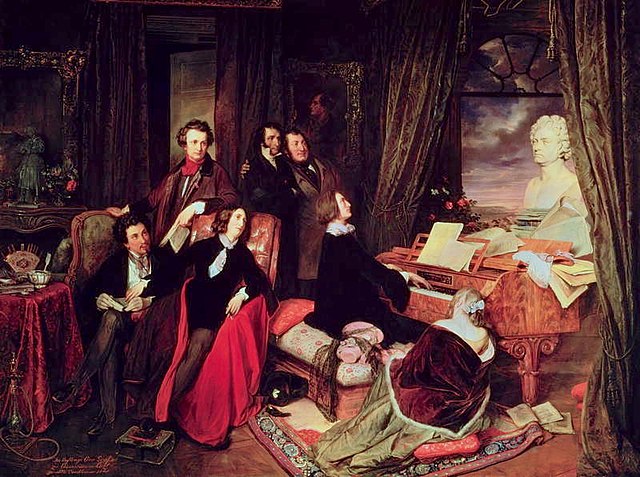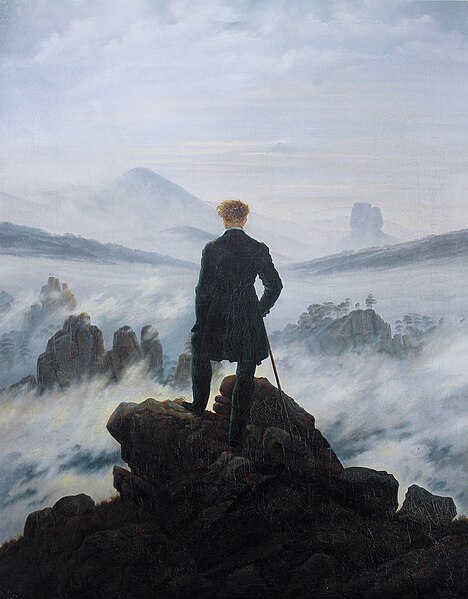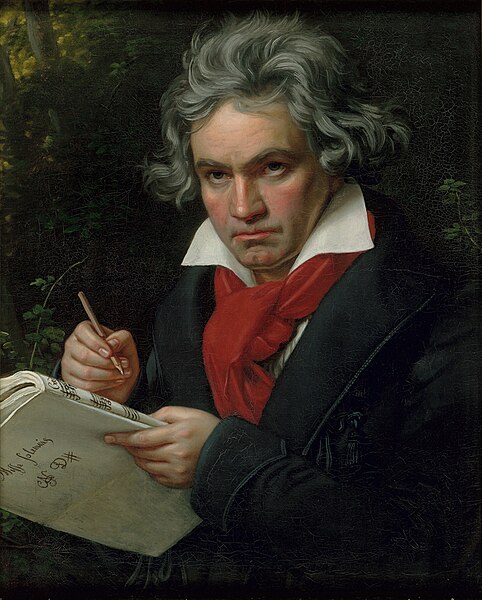Alexander Porfiryevich Borodin was a Romantic composer and chemist of Georgian-Russian extraction. He was one of the prominent 19th-century composers known as "The Five", a group dedicated to producing a "uniquely Russian" kind of classical music. Borodin is known best for his symphonies, his two string quartets, the symphonic poem In the Steppes of Central Asia and his opera Prince Igor.
Borodin, c. 1865
Borodin at the age of 14
Portrait of Borodin by Ilya Repin, 1888
Tomb of Borodin in Tikhvin Cemetery. The musical notation in the background shows themes from "Gliding Dance of the Maidens" from Polovtsian Dances; "Song of the Dark Forest"; and the "Scherzo" theme from Symphony No. 3.
Romantic music is a stylistic movement in Western Classical music associated with the period of the 19th century commonly referred to as the Romantic era. It is closely related to the broader concept of Romanticism—the intellectual, artistic, and literary movement that became prominent in Western culture from about 1798 until 1837.
Josef Danhauser's 1840 painting of Franz Liszt at the piano surrounded by (from left to right) Alexandre Dumas, Hector Berlioz, George Sand, Niccolò Paganini, Gioachino Rossini and Marie d'Agoult, with a bust of Ludwig van Beethoven on the piano
Wanderer above the Sea of Fog, by Caspar David Friedrich, is an example of Romantic painting.
Ludwig van Beethoven, painted by Joseph Karl Stieler, 1820
Richard Wagner in Paris, 1861








